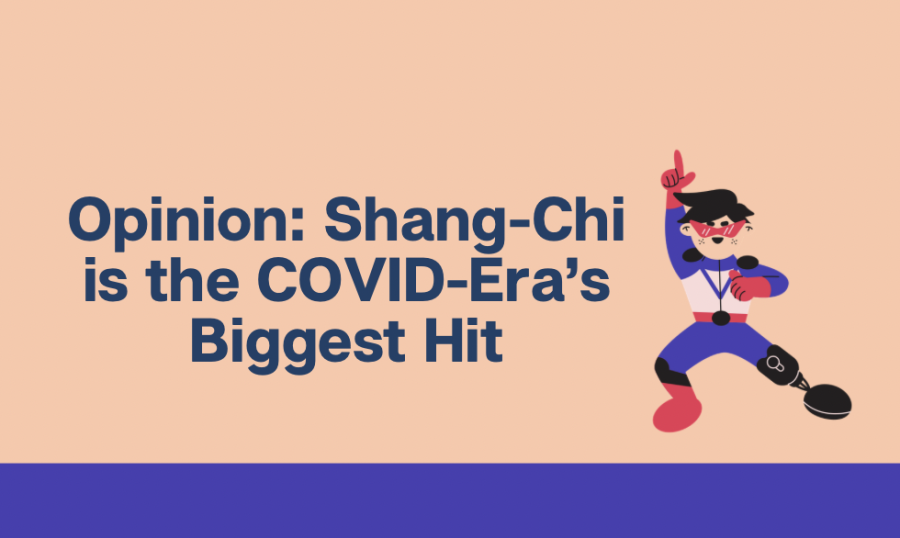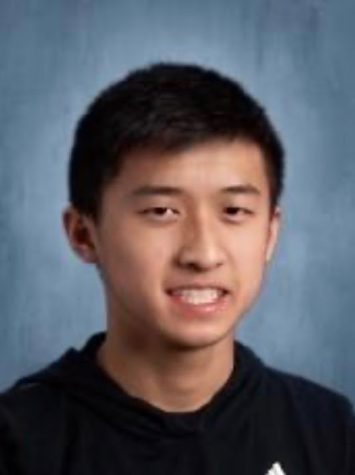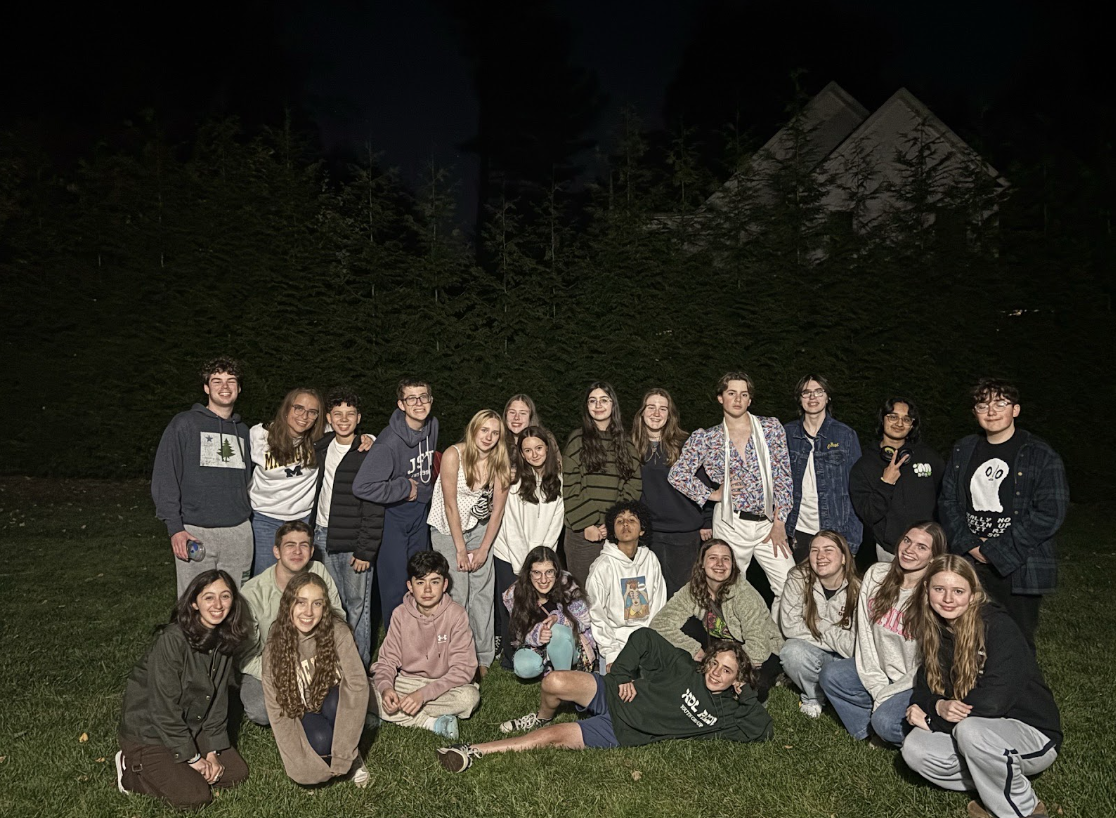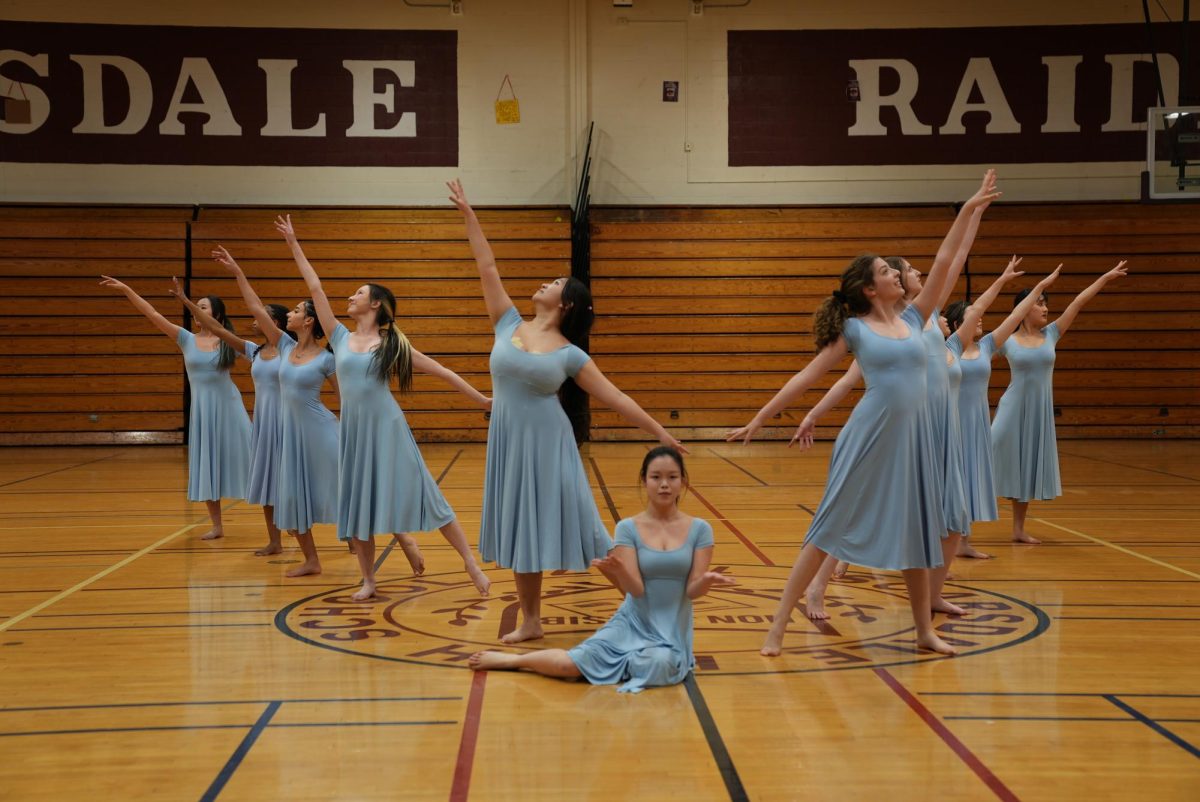Opinion: Shang-Chi Is the COVID-Era’s Biggest Hit
The MCU welcomes Shang-Chi into its increasingly diverse cast of heroes.
October 3, 2021
Shang-Chi, Marvel’s most recent blockbuster, has shattered expectations and surprised audiences around the world with its action-packed story and message. Shang-Chi has broken records and been crowned by many as the “COVID-Era’s Biggest Hit”.
Originally, Shang-Chi (played by Simu Liu) was a second-tier character, even in the original comics from 1973. Prior to the announcement and trailer of the movie, the majority of people had not heard of Shang-Chi before. Publicity for the movie, however, introduced Shang-Chi amazingly to the MCU. From the acting and CGI to the martial arts choreography and soundtrack, Shang-Chi’s portrayal of Asian culture is phenomenal and the first of its kind in MCU.
As the majority of the cast in Shang-Chi is portrayed by Asian actors, a powerful statement was made about Asian, specifically Chinese, culture and traditions, in an effort to combat and raise awareness of the Asian hate crimes that have skyrocketed since the beginning of the pandemic. In the past, the MCU has not had the most diverse cast of heroes, and as far as I know, Wong (played by Benedict Wong) from Doctor Strange was the only other main character that was noticeably Asian. Although many other characters have been played by Asian actors, such as Mantis (Pom Klementieff) and Drax (Dave Bautista) from Guardians of the Galaxy, none of the other MCU movies have focused on a primarily Asian character. Personally, as almost all of the main characters in the movie were Asian, this made the film exciting to see. It definitely makes the MCU feel more inclusive to a wider range of characters that may be introduced in the future.
The movie beautifully portrays Asian martial arts. Many may not think much of the fighting scenes, but the choreography is genuine martial arts that are on par with that of Jackie Chan. The movie also pays tribute to the late Brad Allan, who was part of the choreography team of the movie and part of Jackie Chan’s stunt team.
I especially enjoyed seeing Shang-Chi’s character development throughout the movie. Shang-Chi’s original fighting style consisted of many moves and techniques similar to that of Shaolin, which is shown in the training montages of his younger self. The Shaolin style focuses on manifesting one’s own power through powerful thrusts and quick movements that break through the opponent’s defenses. Through the many fights that they have with each other, Shang-Chi begins to realize that he will never be able to defeat his father with the techniques he learned from his father. When Shang-Chi arrives in Ta Lo, he sees his aunt practicing Tai Chi, which is a more calm and flowing style of martial arts. Though nowadays it is practiced for health benefits, in combat it prioritizes the flowing of power and using someone else’s strength against them.
The soundtrack of the movie took action scenes to the next level and smoothed out transitions from scene to scene. The songs in the soundtrack, ranging from traditional Chinese-style music to hip-hop, were produced by 88Rising, one of the largest production studios in Asia. 88Rising also has produced music for many popular Asian artists. Small details, such as having a primarily Asian label produce music for the movie, can really give those who notice a greater appreciation for the message behind the movie. As a fairly longtime fan of the artists part of 88Rising, such as Rich Brian and Joji, I was excited to hear Rich Brian, Swae Lee, and even Simu Liu being featured in the music that played throughout the movie.
Wenwu (played by Tony Leung), my favorite character in the movie, is a well-crafted villain who has a relatable predicament. After living for thousands of years, he has found the love of his life, who has turned him from a path of death and destruction to a peaceful life with family. Unlike some of the other villains in the MCU, Wenwu has realistic and valid reasons for his actions. The only person who he fell in love with was killed while he was away so he fell back into his destructive nature. To Wenwu, Ying Li (played by Fala Chen) was quite literally someone that could be found once in a thousand years. He’s a villain that can be understood by everyone and his problems are down to earth as opposed to Thanos’ motive of eliminating half of the population of the universe for salvation. I enjoyed seeing his development and his portrayal in the movie. It was interesting seeing how he was the real Mandarin as opposed to the fake one in Iron Man 3 and in the MCU’s All Hail the King. Wenwu’s appearances were almost always action-packed and the visual artists weren’t afraid to show off the MCU’s CGI capabilities. Wenwu’s use of the 10 Rings was very impressive and every movement of the rings was smooth and fit in seamlessly with every movement in the movie’s choreography.
In addition to raising awareness about and combatting Asian hate, the movie also shed light on the feminist movement. Though it was more subtle, feminist ideals were shown prominently through Xialing (played by Meng’er Zhang), who was always overshadowed by her brother. Prevented from training by her father, Xialing began training by herself in secret in hand-to-hand combat and primarily with the rope dart, a spearhead attached to the end of a long rope or chain. Eventually, she runs off by herself and creates a fight club on her own that features many of the past characters from the MCU. When Shang-Chi first arrives at the fight club, he finds himself dueling his sister and ends up being beaten by her, showing the power dynamic between them and Xialing’s growth and independence. Also, the final post-credit scene showed Xialing with a new generation of female warriors, assuming the role as the new leader of the 10 Rings. This was a very powerful feminist statement and it showed that under her rule, the organization has converted to having present ideals of inclusivity.
Looking forward, Shang-Chi will undoubtedly have an important role in the MCU. One of the post-credit scenes showed Shang-Chi and Katy meeting up with Wong, Captain Marvel, and Hulk/Bruce Banner. Using his magic, Wong revealed that the rings were thousands of years older than what Shang-Chi’s father had believed and were also some sort of beacon. This may reveal that some group or person may come looking for the 10 Rings in the next Shang-Chi movie or show. I’m curious to see where the story goes and how Shang-Chi will be connected with these events in the post-credit scenes. It’s also exciting to see that Shang-Chi will be joining the roster of the new era of Avengers.


























